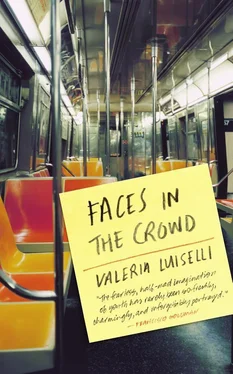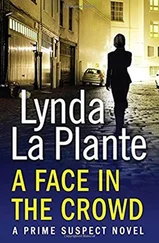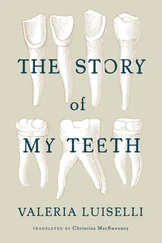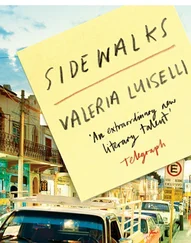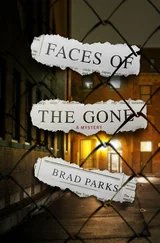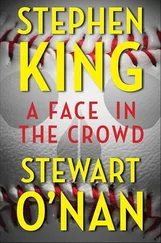I found you a writing desk, she said, so you can write your stuff.
And how am I going to get it home?
We’ll carry it. See, I’ve taken my heels off.
First we dragged it, then we tried carrying it by the corners, one at either end. The task seemed impossible: the apartment was over thirty blocks away. Finally, we got underneath and rested it on our heads and the palms of our hands. Dakota sang the rest of the way home. I did the backing vocals. We got blisters.
*
I can only write during the day if the baby is having a nap beside me. She’s learned to grab anything that comes near her and clings to my right hand to sleep. I write for a while with the left one. The capitals are really difficult. Two or three times, I make an attempt to get my hand back, gently sliding it from between the bars of her fingers, and moving it to the keyboard to type another line. She wakes up and cries, looks at me resentfully. I give her back my hand and she loves me again.
*
So I could work at the new writing desk, I took one of the office chairs to my apartment. Nobody used it, no one was likely to notice, it had been left forgotten in the bathroom for months, and its only function was to hold a roll of toilet paper. It was made of pale wood: slender and fragile. I painted it blue in case White came back some day and recognized it. I put it in front of the new writing desk and wrote a letter to my sister Laura. It began: “I live opposite a park where the children are children and play baseball.”
*
The boy plays hide-and-seek in this house full of nooks and crannies. It’s a different version of the game. He hides and my husband and I have to seek. We have to bring the baby with us and when we finally find him under the bed or in a closet, he shouts, “Found!” and the baby has to start laughing. If the baby doesn’t laugh, we have to begin all over again.
*
One Friday afternoon, while I was in the Columbia University library looking through books to take to the office on Monday, I came across a letter from the Mexican poet Gilberto Owen to his friend and fellow writer Xavier Villaurrutia: “I live at 63 Morningside Ave. There’s a plant pot in the right-hand window that looks like a lamp. It’s got oval-shaped green flames. .” The letter came from his collected works, Obras, and in it Owen listed the objects in a room he was renting in Harlem: writing desk, pictures, plant, magazines, a piano. The address he gave Villaurrutia caught my eye. The building had to be only a few blocks from the library, and very close to my apartment. I didn’t even finish reading the letter. I left the other books I’d selected in a pile, checked out Obras, and left.
After three in the afternoon that neighborhood used to smell of salt: the tears and sweat of the black and Latino children coming out of school, scabs on their knees, spittle and snot on the sleeves of their sweaters. One girl, broad as she was long, was working on a drawing propped up against the trunk of a tree in Morningside Park. In one hand she had a chicken leg, which she bit, or rather sucked, from time to time, and between the thumb and index finger of her other hand she held the green wax crayon with which she was completing the drawing. A boy came up behind her and whacked the back of her legs with his schoolbag — the two plump knees buckled — then grabbed her crayon. She recovered herself, lunged at him, and screamed, You madafaka, then beat his face with the chicken leg until he fell to the ground.
I walked to Owen’s building. I’d often seen it on my way to the subway without knowing he’d lived there. It was a red stone building, similar to all the others in the block, with large windows overlooking the park. When I stopped in front of it, an elderly man was entering the building so I slipped in after him. I went up to the first floor, the second, and continued upward. The man stopped on the third floor, turned to smile at me — Afternoon, ma’am; Afternoon, sir — and went into an apartment. I carried on up to the fourth and fifth floors, until my breath and the stairs ran out, went through a door leading to the roof terrace, and closed it behind me. I lit a cigarette in a sunny corner and waited for something to happen.
As the world didn’t register any changes, I started reading the book I’d just taken out of the library, waiting for some propitious signal. Nothing happened; I went on reading and smoking until it began to get dark. After a few hours, I’d finished all the letters in the volume, the entire collection of poetry in Perseo vencido, and the last of my tobacco, so I decided to go home. I stood up, looking for somewhere to get rid of my handful of cigarette ends. In a corner of the terrace there was a plant in a pot and I went across to bury them in it. I sat down on a stack of newspapers someone had tied up with string, as if for recycling, and dug a hole. Then I realized that the plant pot, like the one Owen described to Villaurrutia, resembled a lamp. The plant in the pot — perhaps a small tree — was withered. It couldn’t possibly be the same one Owen referred to in his letter, but it was, I thought, some kind of signal, the signal I’d been waiting for. I was overtaken by that same excitement babies display when they confirm their existence in a mirror.
It wasn’t my habit to take things that didn’t belong to me. Just sometimes, some things. Sometimes, quite a lot of things. But when I saw that small, dead tree on Owen’s roof, it seemed to me that I had to take it home, care for it, at least for the rest of the winter. Later, perhaps when spring came around again, I could return it to the roof. It was getting darker. I made my way to the door, carrying the pot, ready to go home. But the door had no handle on the outside and I could find no way to open it.
I once read in a book by Saul Bellow that the difference between being alive and being dead is just a matter of viewpoint: the living look from the center outward, the dead from the periphery to some sort of center. Perhaps I froze, perhaps I died of hypothermia. In any case, it was the first night I had to spend with Gilberto Owen’s ghost. If I believed in turning points, which I don’t, I’d say that I began that night to live as if inhabited by another possible life that wasn’t mine, but one which, simply by the use of imagination, I could give myself up to completely. I started looking inward from the outside, from someplace to nowhere. And I still do, even now, when my husband is sleeping, and the baby and the boy are asleep, and I could also be asleep, but am not, because sometimes I feel that my bed is not a bed, these hands are not my hands. I buttoned my coat up to the neck, arranged the sun-soaked papers on the concrete, forming a mat of news that protected me a little. Before sinking my hands into my deep pockets, I put the book into my backpack and used it as a pillow. I placed the plant pot at my feet and lay face up on the ground.
At daybreak, I went to the edge of the roof and sat there, hoping that someone would soon come out of the building. My hands were blue, my lips chapped. Around nine in the morning — the sun was beginning to warm my back — a girl came out with a bicycle. I shouted down to her. The girl turned her head and waved. It was the same fat child with the green wax crayon I’d seen the day before. I begged, promised candy, crayons, and chicken legs in reward for her help. She left her bicycle propped up against the front steps and went back into the building. She took ages to come up, prolonging my agony. I imagined she would go to fetch her mother, her father, her grandparents, all the residents of the building would come up to lynch me and I would have to explain that — What would I say? — that I’d got lost, was sweeping the roof, that I was Mexican, a translator — Sorry, sir; Sorry, ma’am — or that perhaps there was nothing strange about my being up there on their roof on a Saturday morning.
Читать дальше
